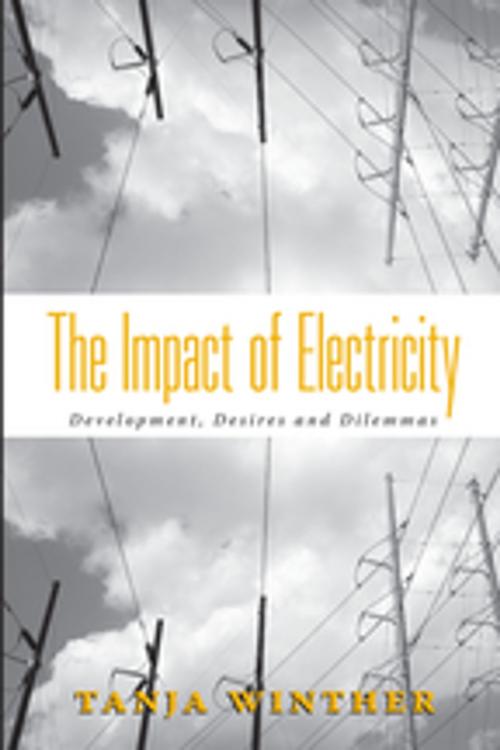The Impact of Electricity
Development, Desires and Dilemmas
Nonfiction, Social & Cultural Studies, Social Science, Anthropology| Author: | Tanja Winther | ISBN: | 9780857450630 |
| Publisher: | Berghahn Books | Publication: | September 1, 2008 |
| Imprint: | Berghahn Books | Language: | English |
| Author: | Tanja Winther |
| ISBN: | 9780857450630 |
| Publisher: | Berghahn Books |
| Publication: | September 1, 2008 |
| Imprint: | Berghahn Books |
| Language: | English |
How does everyday life change when electricity becomes available to a group of people for the first time? Why do some groups tend to embrace this icon of development while other groups actively fight against it? This book examines the effects of electricity’s arrival in an African, rural community. Based on ethnographic fieldwork in Zanzibar at different points in time, the author provides a compelling account of the social implications in question. The rhythm of life changes and life is speeding up. Sexuality and marriage patterns are affected. And a range of social relations, e.g. between generations and genders, as well as relations between human beings and spirits, become modified. Despite men and women’s general appreciation of the new services electricity provides, new dilemmas emerge. By using electricity as a guide through the social landscape, the particularities of social and cultural life in this region emerge. Simultaneously, the book invites readers to understand the ways that electricity affects and becomes implicated in our everyday life.
How does everyday life change when electricity becomes available to a group of people for the first time? Why do some groups tend to embrace this icon of development while other groups actively fight against it? This book examines the effects of electricity’s arrival in an African, rural community. Based on ethnographic fieldwork in Zanzibar at different points in time, the author provides a compelling account of the social implications in question. The rhythm of life changes and life is speeding up. Sexuality and marriage patterns are affected. And a range of social relations, e.g. between generations and genders, as well as relations between human beings and spirits, become modified. Despite men and women’s general appreciation of the new services electricity provides, new dilemmas emerge. By using electricity as a guide through the social landscape, the particularities of social and cultural life in this region emerge. Simultaneously, the book invites readers to understand the ways that electricity affects and becomes implicated in our everyday life.















